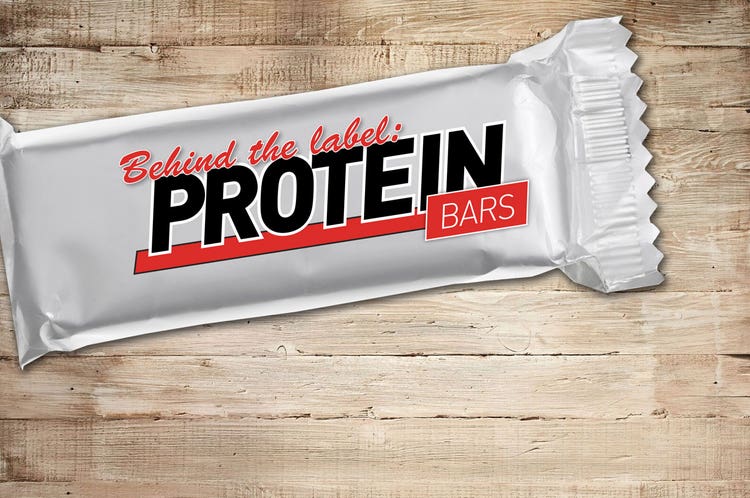Behind the label: Protein Bars

The protein supplement market is big business. Flip through any fitness magazine, or browse your local grocery store, and protein bars are there. They’re convenient, and while they’re processed, they’re not junk food and they seem like they should be relatively good for you. Are they?
What’s in them?
Protein sources. Obviously! Most protein bars are based on whey (a by-product of cheese manufacturing). Among protein sources, whey protein contains the highest biological value — a measure of how well the body can absorb and utilize a protein. That’s the reason why it’s widely accepted as a top supplement for building muscle. Other bars use a “protein blend” with a mixture of animal and/or plant protein derivatives such as casein (another milk derivative), soy isolate, egg white, beef, brown rice, pea, hemp or sprouted grain. The plant-based options are suitable for vegetarians or lactose-sensitive individuals.
Tip: Choose bars with at least 10 grams of protein.
Additives. Protein content isn’t everything. Many high-protein bars are made with cheap, low-quality ingredients, including artificial sweeteners and sugar alcohols — a type of sweetener made from carbohydrates found in fibrous fruit and vegetables, or produced artificially from glucose. Common examples of sugar alcohols include xylitol, erithrytol, mannitol and sorbitol. While artificial sweeteners and sugar alcohols have less of an effect on blood sugar levels and tooth decay, they can cause digestive distress if consumed in large quantities.
Tip: Read the ingredients list. The shorter the better. If you can’t pronounce the ingredients, think again.
Carbs. A bar that contains a balance of protein and carbs is a good thing, especially if your goal is to build muscle. A certain amount of carbohydrates is needed to stimulate the hormone insulin that actually helps the muscles take in the protein (amino acids) for muscle growth. However, sugars are carbs too, and many bars being sold today contain an insane amount to bump up the flavor (many, in fact, could easily be mistaken for a full-fat chocolate bar). The problem is those carbs are “disguised” with different names like agave nectar, glucose and fructose corn syrup.
Tip: Aim for less than 15 grams of sugar (the lower, the better). Look for natural sources of sugar, such as fruit.
Fiber. A bar with fiber is an added bonus, especially if it has prebiotic fiber, such as inulin and oligosaccharides, which help your beneficial gut bacteria flourish. Some manufacturers refer to “net carbs” to distinguish the content of their bars, because while fiber is a carbohydrate, prebiotic fiber sources basically pass through your GI tract undigested.
Tip: Adding fiber (such as inulin) to bars can be a convenient way to boost your fiber intake, but don’t let it be your main — or only — source of dietary fiber. The best sources of fiber include nuts, wholegrains, legumes, fruits and veggies.
Fat. Many bars may be “low carb,” but have a higher fat content, primarily due to how the bar has been manufactured. Some bars contain palm and vegetable oils, which are high in saturated fat — the kind that increases the risk of heart disease.
Tip: Aim for less than 4 grams of total fat, and choose bars with no trans-fats or very little saturated fat. Those baked bars? Just because they’re baked, it doesn’t make them any healthier. Again, read the label.
Energy (calories). Many bars come in a convenient “snack” size, but some can contain more than 400 calories, making those bars more of a meal replacement than a snack.
Bottom line: In very specific circumstances, protein bars can be useful as a convenient post-workout snack or meal replacement (although if you’re looking for convenient meal alternatives, there are way better things to eat). For the average person (even athletes), it’s really easy to get enough protein through diet alone. So, before you spend your hard-earned cash, look to whole foods first like nuts or smoothies, or a bowl of cereal with milk, and meat, fish or legumes with dinner.
Kathleen Alleaume is a nutritionist and exercise scientist and founder of The Right Balance.